Though warmly welcome, what these recordings ultimately represent is not the radical deconstruction of one of the most innovative musical forces of the last generation, but the acceptance of Brian Eno into the canon of modern composers. Neither convey any of the shock and awe of the new that Apollo first had and, in this reviewer’s opinion, still retains. Filling so much space so quietly was a shock to the system thirty years ago; the beauty of it being filled by the Eno brothers and Lanois is still awesome today.
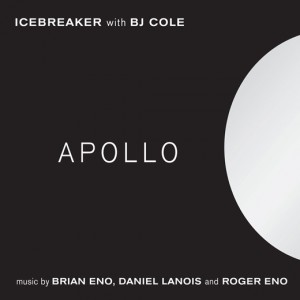 [Release page] Encountering Brian Eno´s Apollo: Atmospheres and Soundtracks in 1983 was a beguiling event from the moment you laid eyes on the front cover. Eno shared billing with two uncelebrated names—Roger Eno and Daniel Lanois. Pianist Roger, his kid brother, was making his recording debut. And although his name was hardly as renowned as it was to become, Lanois did have a solid reputation in southern Ontario for the quality of work he and his brother Bob produced at their Grant Avenue Studio in Hamilton, fifty minutes by car from Toronto.
[Release page] Encountering Brian Eno´s Apollo: Atmospheres and Soundtracks in 1983 was a beguiling event from the moment you laid eyes on the front cover. Eno shared billing with two uncelebrated names—Roger Eno and Daniel Lanois. Pianist Roger, his kid brother, was making his recording debut. And although his name was hardly as renowned as it was to become, Lanois did have a solid reputation in southern Ontario for the quality of work he and his brother Bob produced at their Grant Avenue Studio in Hamilton, fifty minutes by car from Toronto.
From the mid-seventies, Eno’s peculiar electronic music was developing by leaps and bounds —from the avant-pop of Another Green World and Before and After Science and instrumental miniatures offered on Music for Films to the first album featuring the word ”ambient” on its front cover in 1978. This was also when he sought out Lanois, thereby establishing Hamilton as the unsung centre of the ambient universe—Eno, Harold Budd, Jon Hassell, Michael Brook all recorded seminal work there during this period. (There’s a documentary film here just begging to be made.)
The album as a whole was immediately acknowledged as a mesmerizing masterpiece—many of us think “An Ending (Ascent)” is one of the most beautiful pieces of the latter half of the twentieth century—but when the unmistakeable twang of a pedal steel guitar sang out “Deep Blue Morning,” the second beguiling element appeared—country and ambient? This reviewer only recently read that Brian Eno himself jested that it was an attempt to write “zero gravity country and western,” since that was the preferred in-flight listening of the astronauts. In hindsight, it also made perfect musical sense, as the drawn-out reverberations of the pedal steel also evoked the vast emptiness in which they traveled. Moreover, it conveyed the tranquil, elliptical relationship between the Earth and the Moon as seen from a new vantage point.
A cult figure for so long, it was only with the recording of his entire Music for Airports by Bang on a Can that Eno became truly arts-page worthy, a cover so respectful of the original that arranger Evan Ziporyn even transcribed the slight hiss discernible on the original album. Commissioned as the soundtrack to a film about the Apollo 11 flight that hardly received an audience in its original form, Icebreaker’s rendition of Apollo was arranged by South Korean composer Woojun Lee and first performed in 2009. Fittingly, it receives its world premiere recording on Bang on a Can’s own imprint.
The twelve piece Icebreaker is only slightly more hybrid than the Bang on a Can septet that recorded Music for Airports, playing electric guitar, keyboards, saxes, strings, keyboards and percussion and featuring English virtuoso BJ Cole in the all-important cameo role as Daniel Lanois. Like Music for Airports before it, the acoustic ensemble version Apollo is masterly and lovely but unlike it, less conservative. On both, you find yourself rooting for the clarinet or saxophone to aspirate that note just quietly and distinctively enough, and to hold it without quavering. And you are delighted by the clever inclusion of unexpected instruments—the Japanese koto on the former, an accordion on the latter. But Lee’s arrangement truly creates an interpretation as opposed to re-creation, and his reshuffling of the the tracks works wonderfully for the narrative flow of the piece. Icebreaker executes with grace and, dare it be said, emotion, displaying how Eno’s ambient music allows the non-electronic musician to reap massive dividends by playing his or her instrument with such economy. Lee delays Cole’s appearance until halfway through the album, as if to signal a second act, a literal change in atmosphere. Cole plays gorgeously, a mere wisp of moondust on “Matta” mingling with the other instruments, swinging low with the band on “Deep Blue Day,” and weeping with sincerity on “Silver Morning” and “Weightless.”
Though warmly welcome, what these recordings ultimately represent is not the radical deconstruction of one of the most innovative musical forces of the last generation, but the acceptance of Brian Eno into the canon of modern composers. Neither convey any of the shock and awe of the new that Apollo first had and, in this reviewer’s opinion, still retains. Filling so much space so quietly was a shock to the system thirty years ago; the beauty of it being filled by the Eno brothers and Lanois is still awesome today.
Apollo is available on Cantaloupe. [Release page]
[soundcloud url=”http://api.soundcloud.com/playlists/2131233″ width=”100%” height=”450″ params=”auto_play=false&show_artwork=false&color=000000″ iframe=”true” /]






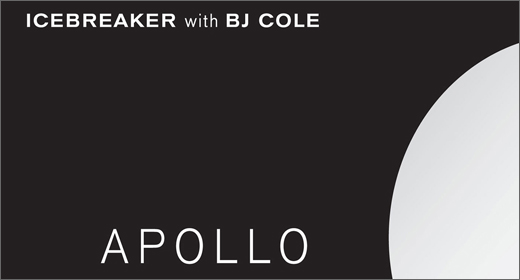
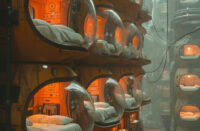
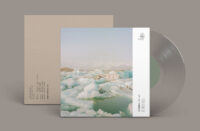
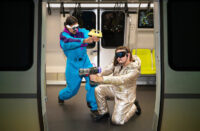


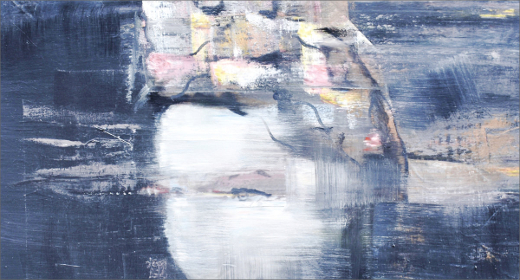
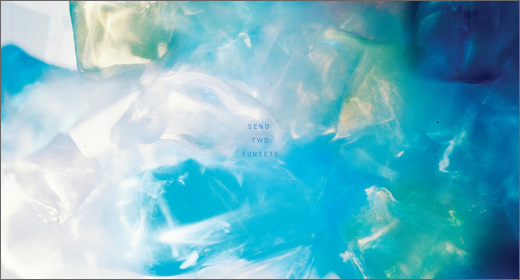
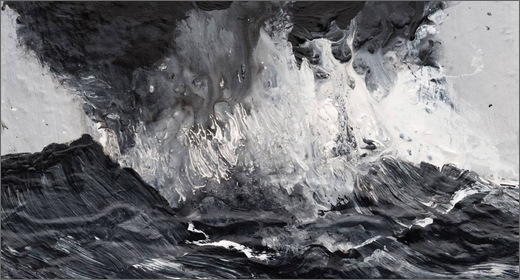




![Hasbeen :: Bunker Symphonies II (Clean Error) — [concise]](https://igloomag.com/wp/wp-content/uploads/2025/04/hasbeen-bunker-symphonies-ii_feat-75x75.jpg)
![Extrawelt :: AE-13 (Adepta Editions) — [concise]](https://igloomag.com/wp/wp-content/uploads/2025/04/extrawelt-ae-13_v_feat-75x75.jpg)
![Beyond the Black Hole :: Protonic Flux EP (Nebleena) — [concise]](https://igloomag.com/wp/wp-content/uploads/2025/04/beyond-the-black-hole-protonic-flux_feat-75x75.jpg)
![H. Ruine, Mikhail Kireev :: Imagined / Awakenings (Mestnost) — [concise]](https://igloomag.com/wp/wp-content/uploads/2025/04/h-ruine-mikhail-kireev-imagined-awakenings_feat2-75x75.jpg)


![Squaric :: 808 [Remixes] (Diffuse Reality) — [concise]](https://igloomag.com/wp/wp-content/uploads/2025/04/squaric-808-remixes_feat-75x75.jpg)
